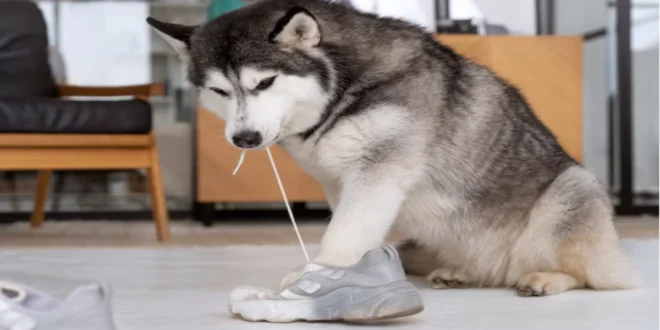Will Dogs Eat Mice? Understanding the Risks and Behavior
Dogs, known for their diverse diets and hunting instincts, sometimes surprise their owners by eating things outside their usual kibble or treats. One question that piques curiosity among dog owners is: will dogs eat mice? While dogs are not typically associated with eating rodents, their behaviors can be unpredictable. This article delves into whether dogs eat mice, why they might do so, the risks involved, and how to manage or prevent this behavior.
Understanding a Dog’s Hunting Instinct
A Legacy of Predatory Behavior
Dogs, as descendants of wolves, are naturally inclined to have hunting instincts. Though domestication has significantly altered their behaviors, some primal traits persist. Wolves and wild dogs hunt small animals, including rodents, to survive. While your fluffy Labrador might not need to hunt for food, its instincts might drive it to chase and capture a mouse if the opportunity arises.
Breeds and Their Tendencies
Certain breeds, such as Terriers, were historically bred for hunting rodents. For example:
- Jack Russell Terriers are excellent mousers, often used in farms to keep rodent populations in check.
- Dachshunds, originally bred to hunt badgers, have a keen nose and an instinct to chase small creatures.
- Rat Terriers are aptly named for their ability to hunt and kill rats and mice.
While not all dogs have the same predatory drive, breeds with a hunting lineage may be more prone to chasing and eating mice.
Why Do Dogs Eat Mice?
1. Instinct and Curiosity
Dogs are naturally curious creatures. A scurrying mouse might trigger their prey drive, causing them to chase and catch it. Eating the mouse could simply be a follow-up to the chase, especially if the dog views it as a reward for their efforts.
2. Hunger or Malnutrition
In rare cases, dogs may eat mice out of hunger or nutritional deficiencies. A well-fed dog is less likely to consume a mouse but might still hunt it for sport.
3. Territorial Behavior
Dogs often view mice as intruders in their space. Their protective instincts may lead them to catch and eliminate the perceived threat, sometimes resulting in eating the mouse.
4. Boredom or Lack of Stimulation
A dog that lacks mental or physical stimulation may turn to unusual behaviors, including hunting mice. Providing proper enrichment and exercise can curb such tendencies.
Is It Normal for Dogs to Eat Mice?
While it is not common for domestic dogs to eat mice regularly, it is not entirely abnormal either. The behavior depends on the dog’s breed, environment, and individual personality. For instance, farm dogs that frequently encounter mice might be more inclined to eat them than pampered indoor pets.
Risks of Dogs Eating Mice
Though eating a mouse might seem harmless, it can pose several risks to your dog’s health. Below are the primary dangers:
1. Poisoning
One of the most significant risks comes from rodenticide poisoning. Many people use poison to control mouse infestations, and if a dog consumes a poisoned mouse, they could suffer secondary poisoning. Symptoms of rodenticide poisoning include:
- Lethargy
- Vomiting
- Difficulty breathing
- Internal bleeding
If you suspect your dog has eaten a poisoned mouse, seek veterinary help immediately.
2. Parasites
Mice often carry parasites such as fleas, ticks, and worms. When consumed, these parasites can transfer to your dog, leading to infestations or infections like:
- Tapeworms
- Toxoplasmosis
- Leptospirosis
3. Bacterial Infections
Mice can harbor harmful bacteria, including Salmonella. If a dog eats an infected mouse, they could develop eat mice gastrointestinal issues such as vomiting, diarrhea, or abdominal pain.
4. Choking or Internal Injuries
The small bones of a mouse can pose a choking hazard or cause internal injuries if they splinter during consumption.eat mice
5. Zoonotic Diseases
Diseases that mice carry can sometimes transfer to humans through dogs. For example:
- Hantavirus can spread through contact with a dog’s saliva after it eats an infected mouse.
- Rat-bite fever is another potential risk.
Signs Your Dog Has Eaten a Mouse
If you suspect your dog has eaten a mouse, watch for these symptoms:
- Gastrointestinal Distress: Vomiting, diarrhea, or lack of appetite.
- Behavioral Changes: Lethargy, irritability, or signs of pain.
- Visible Parasites: Fleas or worms in their fur or stool.
- Poisoning Symptoms: Pale gums, labored breathing, or excessive drooling.
Prompt veterinary attention is crucial if you notice any of these signs.
How to Prevent Your Dog From Eating Mice
1. Rodent-Proof Your Home
- Seal holes and gaps to prevent mice from entering your living space.
- Use humane traps or pest control methods that do not involve poisons, reducing the risk of secondary eat mice poisoning.
2. Supervise Outdoor Time
If your dog spends time outdoors, monitor them to ensure they are not hunting or eating small animals.
3. Provide Adequate Stimulation
- Engage your dog in regular exercise to channel their energy constructively.
- Offer interactive toys and puzzles to keep their mind occupied.
4. Train Your Dog
- Use commands like “Leave it” or “Drop it” to teach your dog to avoid picking up or eating things they eat mice shouldn’t.
- Reward good behavior to reinforce positive habits.
What to Do If Your Dog Eats a Mouse
Discovering that your dog has eaten a mouse can be alarming, especially when considering the potential health risks involved. While it’s natural for dogs to act on their instincts, it’s crucial to take immediate steps to ensure eat mice their safety and well-being. Here’s a detailed guide on what to do if your dog eats a mouse:
1. Observe for Symptoms
Once you notice or suspect that your dog has consumed a mouse, closely monitor them for any signs of distress or illness. Some symptoms may not appear immediately, so continued observation over the next 24 to 48 hours is essential. Look out for the following warning signs:
- Gastrointestinal issues: Vomiting, diarrhea, or lack of appetite.
- Behavioral changes: Lethargy, restlessness, or signs of discomfort such as excessive whining or pacing.
- Breathing difficulties: Labored or irregular breathing could indicate poisoning or internal blockages.
- Unusual stools: Look for blood or parasites in their feces.
Early detection of any abnormalities can make a significant difference in how effectively issues are treated.
2. Contact Your Veterinarian
Even if your dog appears to be fine after eating a mouse, it’s best to consult a veterinarian. Rodents can carry eat mice harmful bacteria, parasites, or toxins that may affect your dog’s health. When contacting your vet:
- Provide details: Share information about the incident, including how long ago it happened, the size of the eat mice mouse, and any symptoms your dog may have displayed.
- Discuss potential poisoning: Inform your vet if there’s a chance the mouse may have been exposed to eat eat mice mice rodenticides or pesticides. Secondary poisoning can be severe and requires prompt attention.
- Follow advice: Your veterinarian may recommend bringing your dog in for an examination or provide specific instructions to monitor and care for your dog at home.
3. Ensure Proper Hydration
Hydration plays a vital role in flushing out toxins and maintaining your dog’s overall health. After your dog eats a mouse, provide them with access to clean, fresh water at all times. Drinking plenty of water helps:
- Dilute and flush out potential toxins or harmful substances ingested from the mouse.
- Alleviate mild stomach upset by aiding digestion.
If your dog shows signs of dehydration, such as dry gums, lethargy, or reduced urination, it’s important to inform your veterinarian immediately.
4. Avoid DIY Remedies
Resist the temptation to use at-home remedies or over-the-counter medications without veterinary guidance. Some common actions dog owners take can do more harm than good:
- Inducing vomiting: While making your dog vomit to remove the mouse might seem logical, this can cause eat mice complications. For example, sharp bones from the mouse could injure your dog’s throat or esophagus during regurgitation.
- Administering medications: Human medications or unapproved remedies can be toxic to dogs and worsen eat mice their condition. Always wait for professional advice before giving your pet any substance.
- Feeding a “remedy diet”: Stick to your dog’s regular food unless directed otherwise by a veterinarian. Abrupt dietary changes can upset their stomach further.
5. Safely Dispose of Any Remaining Rodents
If other mice are in the vicinity, act quickly to eliminate them safely and humanely to prevent further encounters. Avoid using poison traps, which can lead to secondary poisoning if your dog consumes another affected mouse. Opt for live traps or consult a pest control professional for dog-safe solutions.
6. Schedule a Follow-Up
Even if your dog appears healthy after the incident, consider scheduling a follow-up appointment with your eat mice veterinarian. This is especially important if:
- Your dog ingested a wild or poisoned mouse.
- They display lingering symptoms such as fatigue, abnormal stool, or decreased appetite.
- They are prone to hunting and eating small animals, making future incidents likely.
A follow-up visit can ensure your dog hasn’t developed any underlying health issues and help implement preventative measures for eat mice.
Why Timely Action Is Crucial
Prompt action after your dog eats a mouse can significantly reduce the risk of serious health complications. Taking the necessary precautions ensures your furry friend stays happy, healthy, and safe from potential dangers associated with consuming rodents. Always prioritize veterinary advice and focus on preventive care to avoid eat mice such incidents in the future.
You can effectively handle the situation and safeguard your dog’s well-being by staying vigilant and proactive.
Are There Any Benefits to Dogs Eating Mice?
From a biological perspective, mice are a source of protein and nutrients, which might explain why wild dogs or wolves consume them. However, the risks far outweigh any potential benefits in a domestic setting. Your dog’s diet should come from safe, controlled sources like high-quality dog food.
Myths and Misconceptions About Dogs Eating Mice
1. Dogs Eating Mice Is Natural and Harmless
While it is natural for some dogs to hunt mice, consuming them can be far from harmless due to the risks of eating mice disease and poisoning.
2. All Dogs Will Eat Mice If They Encounter Them
Not all dogs have the same prey drive. Some may show interest in chasing mice but may not go as far as eating eat mice them.
3. Dogs Are Immune to Mouse-Related Diseases
Dogs are susceptible to many diseases and parasites carried by mice, so caution is essential.
Conclusion: Should You Be Concerned?
So, will dogs eat mice? Yes, some dogs will, driven by their hunting instincts, curiosity, or environment. However, as a responsible pet owner, it’s essential to recognize the risks and take steps to prevent this behavior.
If your dog eats a mouse, monitor their health and consult a veterinarian to ensure their safety. By providing proper training, stimulation, and a rodent-free environment, you can minimize the chances of your furry friend becoming a mouse-eating hunter. Always prioritize your dog’s health and well-being, ensuring their diet and behavior align with their safety.
By taking preventative measures and staying informed, you can manage your dog’s natural instincts without putting their health at risk. After all, every pet owner strives for a happy, healthy dog!
Frequently Asked Questions (FAQs)
Why might my dog chase and eat mice?
Dogs often chase and eat mice due to their natural hunting instincts, curiosity, or territorial behavior. Certain breeds, like Terriers, are more predisposed to hunting small animals because of their historical roles. Providing mental stimulation and training can help curb this behavior.
Is it dangerous for my dog to eat a mouse?
Yes, eating a mouse can pose health risks to your dog. Mice may carry parasites, bacteria, or even poisons if they have ingested rodenticides. These risks can lead to illnesses or infections, so monitoring your dog closely and contacting a vet if necessary is essential.
How can I prevent my dog from eating mice?
To prevent your dog from eating mice:
- Seal any entry points to your home to keep rodents out.
- Supervise your dog during outdoor activities.
- Train them with commands like “Leave it” to discourage eating unfamiliar items.
- Provide regular exercise and enrichment to reduce boredom-driven behaviors.
What should I do if my dog eats a mouse?
If your dog eats a mouse, observe them for any symptoms of distress, such as vomiting or lethargy. Contact your veterinarian promptly, especially if poisoning or parasite exposure is a concern. Avoid administering home remedies without professional guidance.
Are there specific dog breeds that are more likely to hunt mice?
Yes, some breeds have a stronger prey drive and are more likely to hunt mice. Breeds like Jack Russell Terriers, Dachshunds, and Rat Terriers were historically bred for rodent control and tend to exhibit these behaviors more than others.
Can eating a mouse affect my dog’s health long-term?
If your dog consumes a mouse and contracts an infection or parasites, it could lead to long-term health complications if untreated. Regular veterinary check-ups and preventive measures like deworming can minimize the risks and ensure your dog stays healthy.
READ ALSO: Exploring Strawberry Plains, TN: A Hidden Gem in East Tennessee
 Touch Blog
Touch Blog



